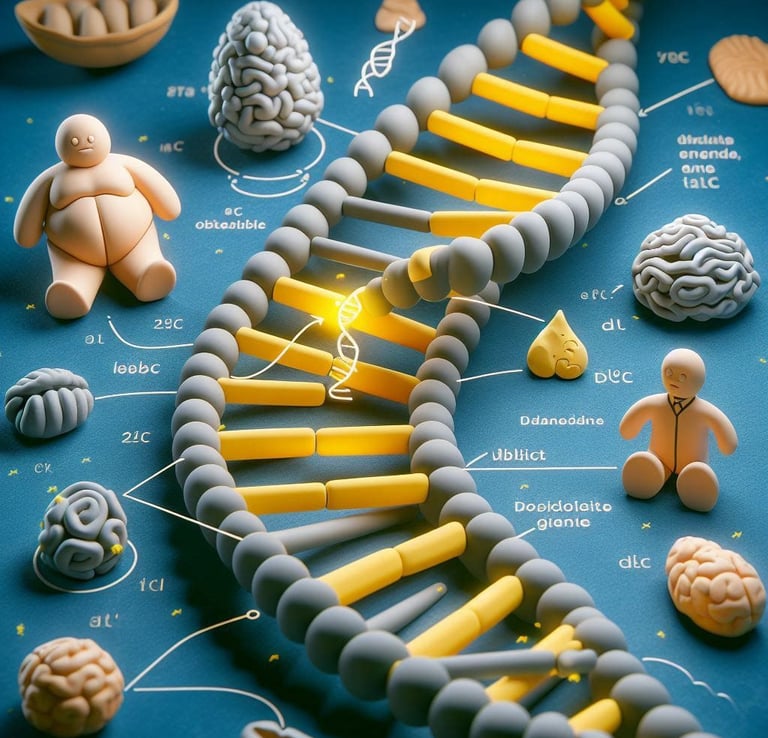Genetic causes of childhood obesity
Working with our clinical collaborators, we study rare mutations in children with severe early-onset obesity. Using CRISPR-based genome editing, we replicate human mutations in mice to understand how faulty genes impact food intake and glucose metabolism. We aim to develop targeted treatments to mitigate metabolic syndrome in affected children. Recent paper 1, paper 2&press release 1, press release 2.


Image by DALL E3
Drug-induced metabolic syndrome
Antipsychotic drug (APD)-induced metabolic syndrome affects millions of patients worldwide and is a leading cause of drug discontinuation. We have developed unique mouse models that recapitulate APD-induced obesity and diabetes in humans. Our research focuses on studying the molecular mechanisms underlying excessive weight gain with the hope to identify novel therapeutic targets for APD-induced metabolic disorders. Recent paper & press release.


Image by DALL E3
Brain serotonin and appetite regulation
The brain serotonin (5-HT) system has been a target of multiple weight loss therapies. Compounds that elevate 5-HT levels, such as the once-popular diet pill Fen/Phen, reduce food intake and body weight. However, a global rise in 5-HT signaling can result in adverse and potentially fatal outcomes. Our research focuses on identifying specific 5-HT receptor circuits in the brain that mediate the appetite-suppressing effect. Recent paper & press release.


Image by DALL E3
